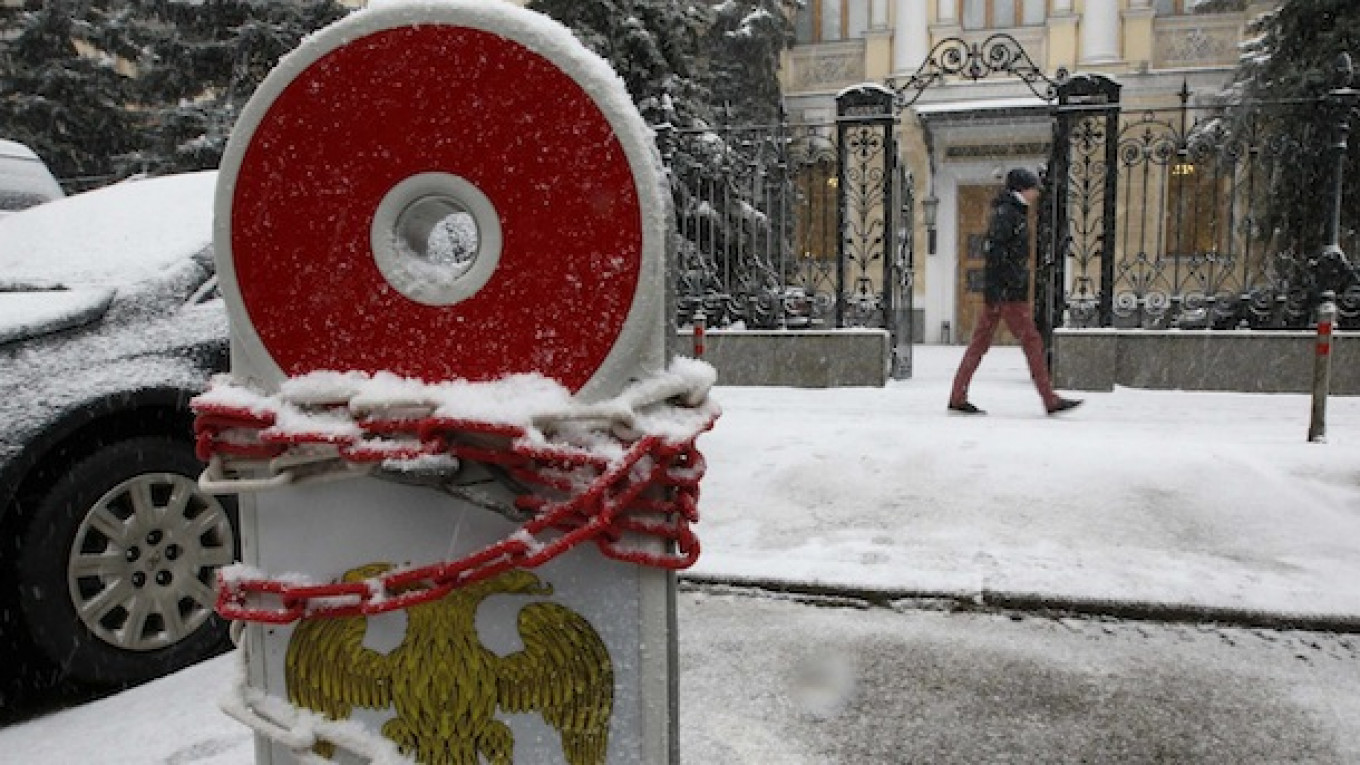The Russian economy and ruble are still at risk from oil price volatility, Western sanctions and speculative behavior on the foreign exchange market, the Central Bank's First Deputy Governor Ksenia Yudayeva said Friday.
"It's premature to say that crisis trends in the economy have been overcome," she told the Federation Council, Russia's upper house of parliament.
She added that the Central Bank was ready to reduce its minimum requirements for banks' loan-loss provisioning if they encountered financial difficulties.
"If suddenly there is crisis with payments we can use the measure of reducing reserve requirements," she said.
"Experience shows that this measure helps with [financial] shortcomings before they arise."
The Russian economy is set to see its first recession this year since the aftermath of the 2008-2009 global financial crisis as sanctions imposed on Moscow for its role in the Ukraine conflict and a sharp drop in oil prices bite.
Yudayeva added that the peak of ruble volatility had ended. The ruble fell to a record-low of 80 rubles per dollar in mid-December, but has recovered since and has been trading mostly between 60 ruble and 70 rubles this month.
A Message from The Moscow Times:
Dear readers,
We are facing unprecedented challenges. Russia's Prosecutor General's Office has designated The Moscow Times as an "undesirable" organization, criminalizing our work and putting our staff at risk of prosecution. This follows our earlier unjust labeling as a "foreign agent."
These actions are direct attempts to silence independent journalism in Russia. The authorities claim our work "discredits the decisions of the Russian leadership." We see things differently: we strive to provide accurate, unbiased reporting on Russia.
We, the journalists of The Moscow Times, refuse to be silenced. But to continue our work, we need your help.
Your support, no matter how small, makes a world of difference. If you can, please support us monthly starting from just $2. It's quick to set up, and every contribution makes a significant impact.
By supporting The Moscow Times, you're defending open, independent journalism in the face of repression. Thank you for standing with us.
Remind me later.






